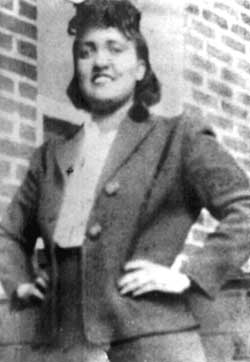| Henrietta Lacks Posted: 13 Jun 2012 03:45 AM PDT  Have you heard of Henrietta Lacks? Have you heard of Henrietta Lacks?
She was a poor Southern tobacco farmer who worked the same land as her slave ancestors, yet her cells—taken without her knowledge—became one of the most important tools in medicine. The first "immortal" human cells grown in culture, they are still alive today, though she has been dead for more than sixty years. If you could pile all HeLa cells ever grown onto a scale, they'd weigh more than 50 million metric tons—as much as a hundred Empire State Buildings. HeLa cells were vital for developing the polio vaccine; uncovered secrets of cancer, viruses, and the atom bomb's effects; helped lead to important advances like in vitro fertilization, cloning, and gene mapping; and have been bought and sold by the billions. Yet Henrietta Lacks remains virtually unknown, buried in an unmarked grave.
I just finished The Immortal Life of Henrietta Lacks and I cannot recommend this book enough even though I don’t know anything about science. It’s a relatively quick read and you will learn how humanity owes a debt of gratitude to a poor black woman. That’s not a shock. What’s shocking is how Henrietta Lacks has been monetized by all the wrong people and in the most insidious ways. - The Lacks family received no payment from this scientific discovery.
- The scientists and academics who were responsible for collecting, cultivating and distributing the human cells received quite a bit of notoriety but they didn’t become wealthy from the discovery, either.
- And Johns Hopkins denies profiting in any substantial way.
But there are smart and savvy businessmen who made a mint off the manufacturing and development of the HeLa cells. They didn’t know anything about science but understood supply chain and logistics. It is disgusting. I was surprised to discover business lessons in this book — but I found a few. - First of all, drug discovery and manufacturing is complex and expensive. I was reminded that one commercial drug is the outcome of decades of scientific research and study. And sometimes it’s the result of luck and good fortune.
- Also, it doesn’t matter how passionate you are about something because not everyone who works hard in life — at a job, at work, etc. — will get the credit they deserve.
- Finally, I was reminded that the free market is neither free nor fair.
Go read The Immortal Life of Henrietta Lacks and then think about your own workforce. Who truly sacrifices in your organization and who really reaps the benefits and rewards of that hard work?  |




No comments:
Post a Comment